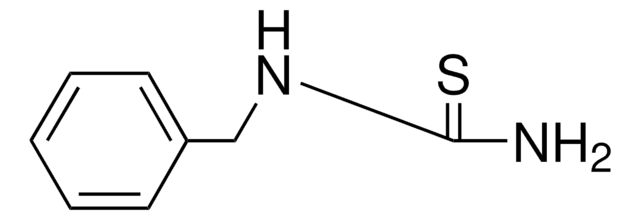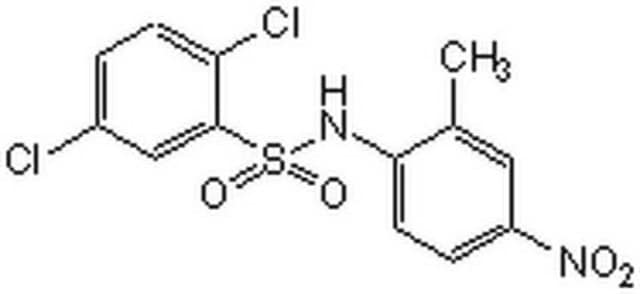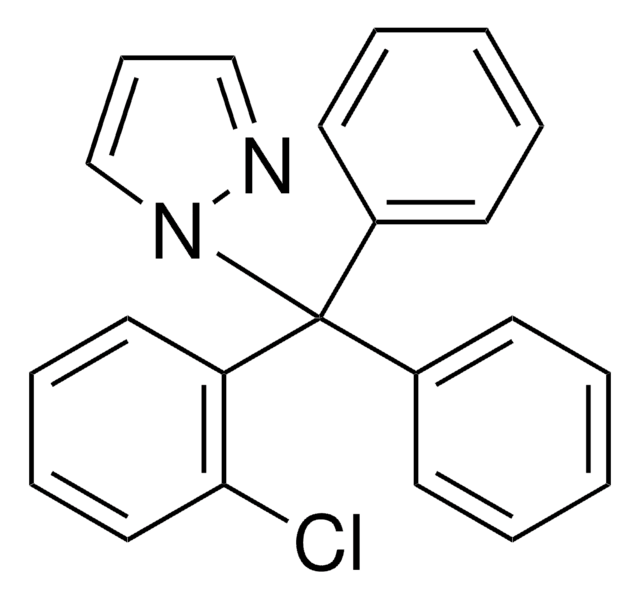SML0211
iCRT3
Synonyme(s) :
2-[[[2-(4-ethylphenyl)-5-methyl-4-oxazolyl]methyl]thio]-N-(2-phenylethyl)acetamide
About This Item
Produits recommandés
Pureté
≥98% (HPLC)
Niveau de qualité
Forme
powder
Conditions de stockage
desiccated
Couleur
white to tan
Solubilité
DMSO: ≥5 mg/mL
Température de stockage
2-8°C
Chaîne SMILES
CCc1ccc(cc1)-c2nc(CSCC(=O)NCCc3ccccc3)c(C)o2
InChI
1S/C23H26N2O2S/c1-3-18-9-11-20(12-10-18)23-25-21(17(2)27-23)15-28-16-22(26)24-14-13-19-7-5-4-6-8-19/h4-12H,3,13-16H2,1-2H3,(H,24,26)
Clé InChI
QTDYVSIBWGVBKU-UHFFFAOYSA-N
Description générale
Application
- for β- catenin inhibition in dual luciferase assay
- to inhibit β-catenin /TCF interactions and their transcriptional activity
- as wingless/tailess (wnt) antagonist, to determine Wnt/β-catenin signaling is essential for PROX1-mediated regulation of forkhead box protein C2 (FOXC2)(3)catenin inhibition in dual luciferase assay
- to inhibit β- catenin /TCF interactions and their transcriptional activity
- as wingless/tailess (wnt) antagonist, to determine Wnt/β-catenin signaling is essential for PROX1-mediated regulation of forkhead box protein C2 (FOXC2)
Actions biochimiques/physiologiques
Code de la classe de stockage
11 - Combustible Solids
Classe de danger pour l'eau (WGK)
WGK 3
Certificats d'analyse (COA)
Recherchez un Certificats d'analyse (COA) en saisissant le numéro de lot du produit. Les numéros de lot figurent sur l'étiquette du produit après les mots "Lot" ou "Batch".
Déjà en possession de ce produit ?
Retrouvez la documentation relative aux produits que vous avez récemment achetés dans la Bibliothèque de documents.
Notre équipe de scientifiques dispose d'une expérience dans tous les secteurs de la recherche, notamment en sciences de la vie, science des matériaux, synthèse chimique, chromatographie, analyse et dans de nombreux autres domaines..
Contacter notre Service technique







